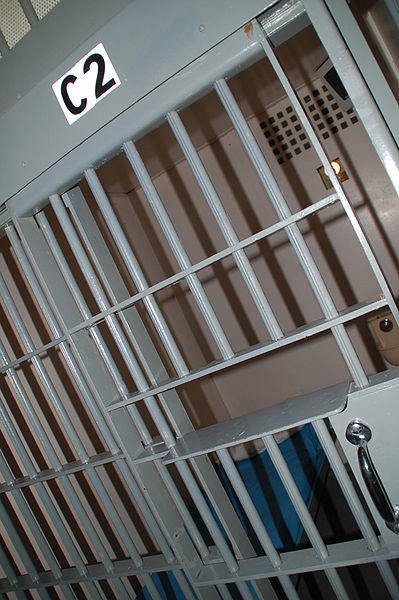It’s tough to get people to stand up for prisoners. Disproportionately poor, black, and Hispanic, America’s prisoners typically lose whatever minimal public influence they once had when they vanish into our country’s vast detention system. What’s more, they (generally) vanish by their own fault, forfeiting whatever sympathy the public might have had for them. Republicans have typically been the “tough on crime” party, and while Democrats may take a more nuanced view of incarceration, no one wants to be tarred as the pro-criminal party. (Remember Michael Dukakis and Willie Horton?)
Yet paleo evangelicals (of whom I have written here often) and other Christians pause at Matthew 25:36, when King Jesus commends his followers’ faithfulness, saying “I was in prison and you came to visit me.” We are commanded to identify with the “least of these,” from unborn children to the elderly to the incarcerated.
Few would quibble with the notion that we need a firm, consistent punitive system to deal with lawbreakers. The American prison system, however, displays horrifying signs of corruption, neglect, and ineffectiveness. Doing something about prison problems has forged unusual bipartisan alliances in recent days, especially that between Senators Rand Paul (R) and Pat Leahy (D), who have proposed the Justice Safety Valve Act, which would “allow federal courts in certain situations to impose a sentence below a statutory minimum.” Paul notes that America imprisons a higher percentage of its population than any other country, and that since enacting mandatory minimum sentencing practices, the population of U.S. prisons has quadrupled to 2.4 million.
If the prison population represented a city, it would be the fourth largest in the country, just behind Chicago and ahead of Houston. Nonviolent drug offenses in particular have sent huge numbers of black and Hispanic men into the prison system, where they often face pressure and demands from gangs, as well as predatory sexual behavior.
The crisis of prison rape, again, receives little attention from politicians or the media, but certain evangelicals, such as the Southern Baptist Convention’s Ethics and Religious Liberty Commission, have kept the issue in front of their supporters. The ERLC’s Joe Carter recently called for “Ending the Epidemic of Prison Rape,” citing a Department of Justice 2007 study that showed that “60,000 inmates claimed to have been sexually victimized by prison guards or other inmates during the previous 12 months.” Many of these prisoners, even if incarcerated for short periods on non-violent drug offenses, will leave with sexually-transmitted diseases. Experts estimate that more than a quarter of female prisoners are sexually abused, too.
Evangelicals are often on the front line of ministering to prisoners, and new programs such as Southwestern Baptist Seminary’s Darrington Project offer prisoners the opportunity to receive theological education in jail. My Baylor colleague Byron Johnson has done more than anyone to assess these programs’ effects on recidivism, noting that they go beyond a simple “jailhouse conversion” and often help convicts to begin the arduous process of putting their lives on a different path. “I do believe that ‘finding God’ or becoming a born-again Christian can play a critically important role as a starting point in the process of long-term change and reform,” Johnson says. “But these conversions, in isolation, are insufficient in reforming offenders and bringing about lasting change. I would argue that the key to authentic behavioral change lies in an ongoing process of spiritual transformation.”
Johnson is now releasing similar analysis of the Prison Entrepreneurship Program, also piloted in Texas, a faith-based initiative inspired by the notion that inmates (some of whom have extensive illicit business experience) could be coached to establish and run their own legitimate companies. Johnson and his team of researchers have found that the program’s efforts “reduce recidivism and the substantial human and social costs resulting from it.”
There are structural, legal, educational, and spiritual dynamics to reforming the prison system. It is a multifaceted problem, and engaging in prison reform scores few political points. But if evangelicals and other believers will not “visit the prisoner,” who will?












